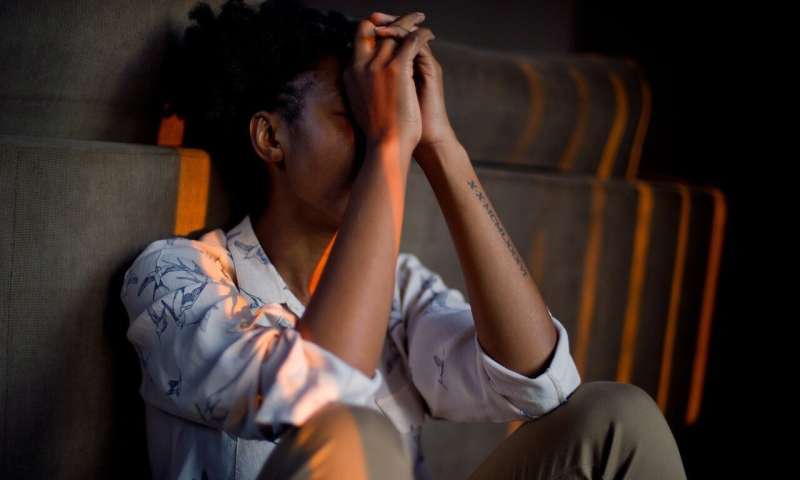This article has been reviewed according to Science X's editorial process and policies. Editors have highlighted the following attributes while ensuring the content's credibility:
fact-checked
trusted source
proofread
Study finds veterans of color and female veterans reported more stress during COVID-19 pandemic

The COVID-19 pandemic led to illness and death, significant economic and employment problems, severe social restrictions and substantially altered family life—the effects of which researchers are beginning to understand.
A study conducted by researchers at the Clearinghouse for Military Family Readiness at Penn State (Clearinghouse), published in Stress and Health, examined the stress levels of post-9/11 veterans during the COVID-19 pandemic across four life domains: employment, financial, social and health.
"In 2020, at the height of the pandemic, we asked more than 3,100 post-9/11 veterans about their experience of stress in a number of life domains," said corresponding author Keith Aronson, co-director of the Clearinghouse. "In virtually every domain, veterans of color and female veterans reported significantly higher levels of stress than their white male counterparts."
In the employment domain, white male veterans reported significantly less stress about their job stability than females, Black and Hispanic males, as well as male respondents who identified as being from the "other" racial group category.
When asked how stressed they were about using public transportation for work, most veterans reported only slight stress, although females from the "other" racial category reported the highest level of stress. On average, restrictions on in-person interactions at work were rated as somewhat stressful, with female veterans and veterans of color being more stressed about contracting COVID-19 while at work than white males.
"In terms of financial stress, post-9/11 veterans reported being slightly stressed about paying for essentials, such as food and rent," said co-author Daniel Perkins, co-director at the Clearinghouse, and professor of family and youth resiliency and policy in the College of Agricultural Sciences.
"Indeed, some of the largest discrepancies in stress levels were around finances. For example, Black male veterans were 13% and female Hispanic veterans were 21% more likely than white males to feel stress about paying for essentials."
Compared to white male veterans, all other veterans were significantly more likely to report being stressed about their ability to pay for "extras," such as dinging out and going to the movies. For example, "other" race and Hispanic females were 44% and 37% more likely to report stress, respectively, in this area.
Overall, post-9/11 veterans reported being slightly to somewhat stressed about their social isolation. White and Hispanic female veterans were more stressed by social isolation than males from all race/ethnicity groups.
The majority of post-9/11 veterans reported being somewhat stressed about missing major social and life events such as weddings and graduations and "other social activities" such as going to restaurants and sporting events.
In terms of mental/emotional health, male and female veterans of color reported significantly higher levels of stress than their white male peers. White female veterans also had higher mental/emotional stress than Hispanic males.
Black females reported significantly higher mental/emotional stress compared to Black, Hispanic and "other" race males. Hispanic females reported significantly more psychological stress than Hispanic male veterans. Male and female veterans of color reported significantly higher levels of stress related to their physical health than their white male peers.
The findings from this study align with those from a number of studies from across the U.S. also showing that females and people of color were more negatively impacted by the COVID-19 pandemic than white males, the researchers said. For example, a recent study from Monmouth University found that females were more burdened by parenting and household responsibilities during lockdowns than males.
A 2022 analysis of data from the Centers for Disease Control and Prevention by KFF, an independent source for health policy research and more, found that people of color were infected with and died from COVID at significantly higher rates than would be expected given their percentage of the U.S. population.
The researchers theorized COVID-19 exacerbated already existing health and social disparities experienced by post-9/11 veterans of color and female veterans.
"Closing these disparities and reducing barriers to care for veterans of color and females would likely enhance their health and well-being in the event of future health shocks such as the COVID-19 pandemic," Aronson said.
More information: Keith R. Aronson et al, The differential impact of COVID‐19 on the psychological stress of post‐9/11 veterans: Gender, race, and ethnicity, Stress and Health (2023). DOI: 10.1002/smi.3360



















